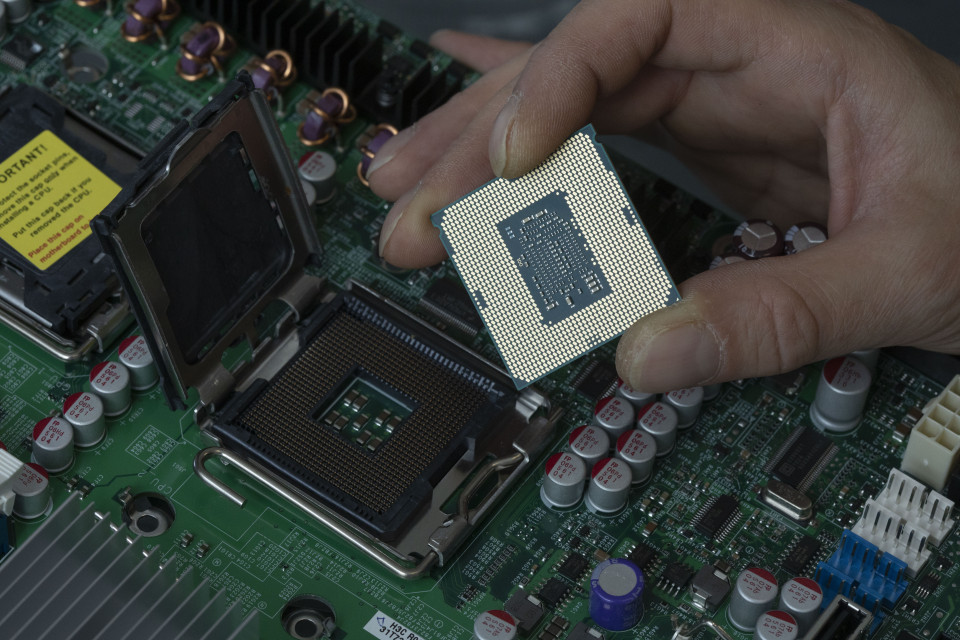The Japanese government said Friday it will tighten export controls for advanced chip manufacturing equipment, joining U.S.-led efforts that seek to stymie China's ability to develop high-end semiconductors capable of being used for military purposes.
Japan's decision to expand the scope of chip-manufacturing goods that require approval for export, expected to come into force in July, triggered a backlash from Beijing even as Tokyo did not single out the neighboring economic powerhouse as the main target of the restrictions.

"It is to prevent our technology from being diverted for military use," Japan's Economy, Trade and Industry Minister Yasutoshi Nishimura told a press conference. "We will fulfill our responsibility to the international community."
In October last year, the United States rolled out a sweeping set of export controls on certain high-end chips that Beijing could use to train artificial intelligence systems and modernize its military while asking Japan and the Netherlands -- in possession of advanced technologies on chip manufacturing -- to follow suit.
Under the plan, which will become official after soliciting public comments, Japan will revise a trade ministry ordinance under the foreign exchange law and add 23 items subject to the restrictions.
The list includes equipment for cleaning, checkups and lithography, a technology used for printing complex patterns on semiconductor wafers, which is essential in producing cutting-edge chips.
About 10 Japanese companies, including Tokyo Electron Ltd., are involved in such equipment manufacturing. But Nishimura said the impact of the new regulations on domestic companies would likely be limited as the export control targets "extremely advanced" technology.
At the same time, the Japanese government will allow a simplified process for exporting the equipment to 42 countries and regions, including the United States, a security ally of Japan, and Taiwan, a key player in the semiconductor industry. China was not among them.
In Beijing, Chinese Foreign Ministry spokeswoman Mao Ning rapped Japan's move, saying it would "artificially disrupt the stability of the global supply chain."
"Politicizing, instrumentalizing and weaponizing tech and trade issues...would only hurt others as well as oneself," Mao warned.
She also told a press conference that the global supply chain of chips came into being due to market rules and the choices of companies, in criticism of U.S.-led restrictions targeting China.
The latest development came after the Dutch government said earlier this month it plans to introduce stricter controls on lithography technology, with the measure likely to be introduced before the summer.
According to a U.S. government report on supply chains in 2021, the United States possesses a significant share of global production for most types of front-end semiconductor manufacturing equipment, with the notable exception of lithography, which is concentrated in the Netherlands and Japan.
China has objected to the U.S. export restrictions, filing a complaint with the World Trade Organization in December last year alleging that Washington has been "abusing" the use of export control measures in the name of protecting national security.
Related coverage:
Japan eases chipmaking material export curbs on South Korea
Japanese chipmaker Rapidus to build advanced chip plant in Hokkaido
Japan, U.S., South Korea, Taiwan launch 'Chip 4' talks for supply chain










